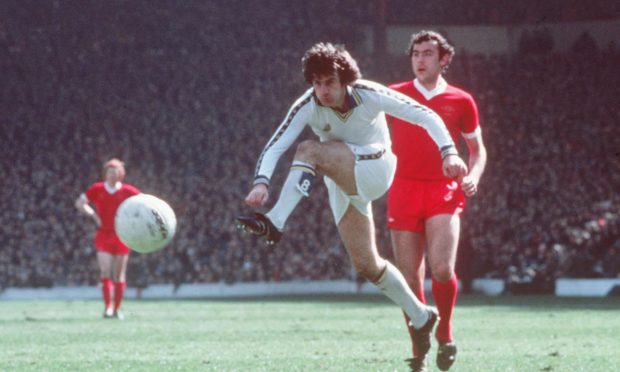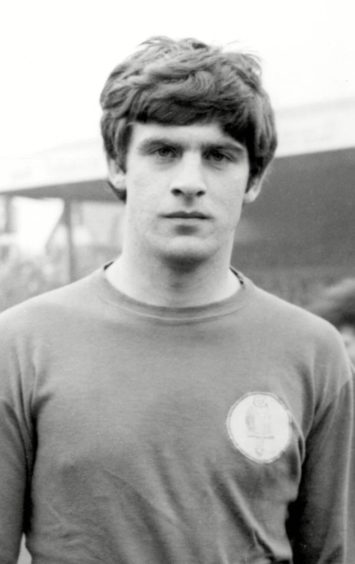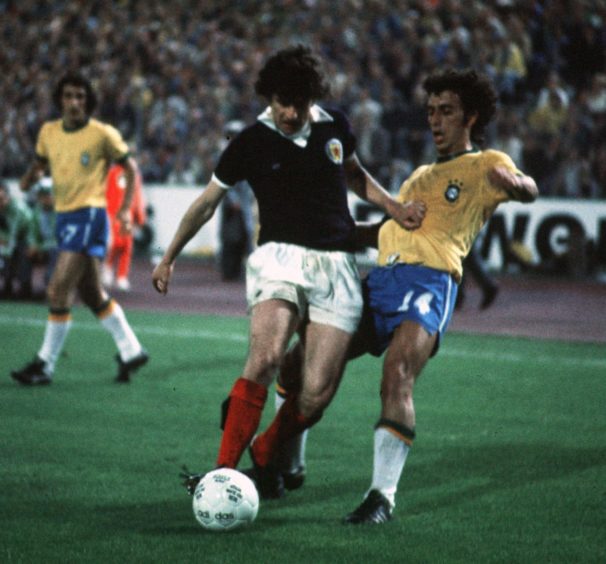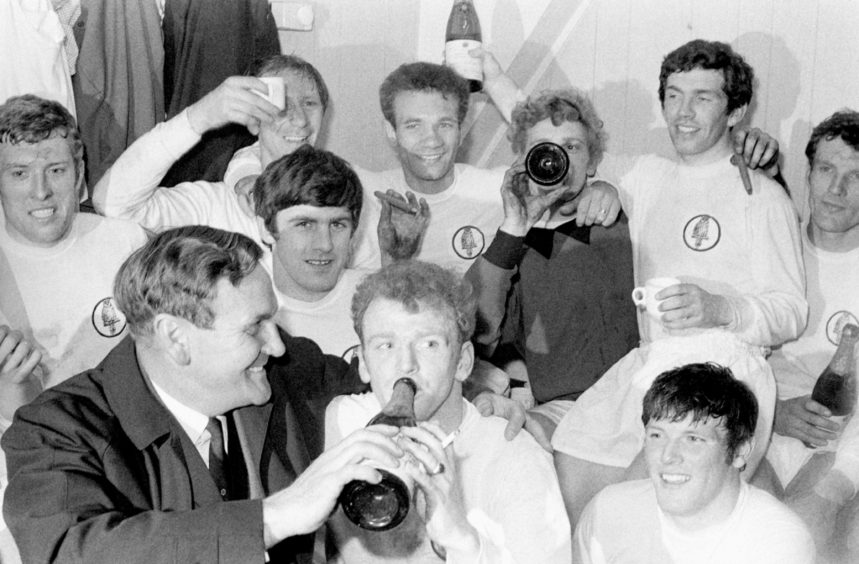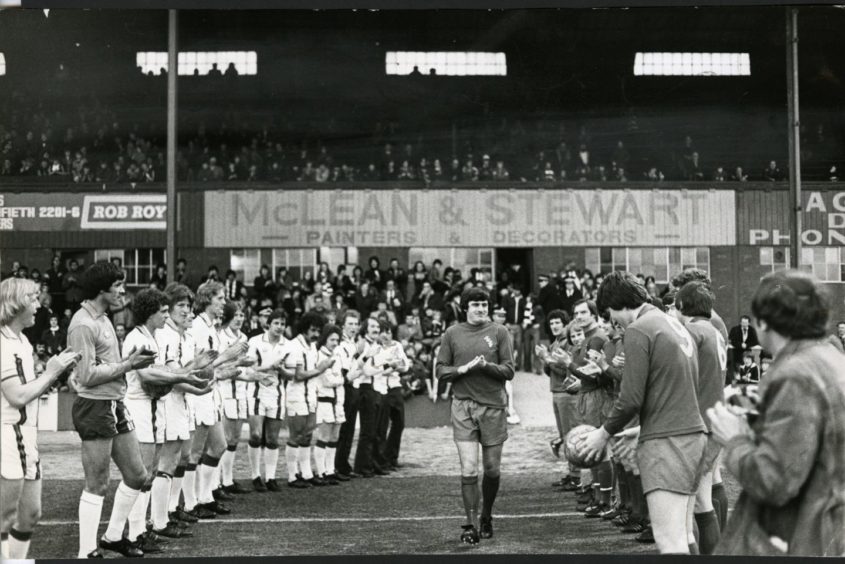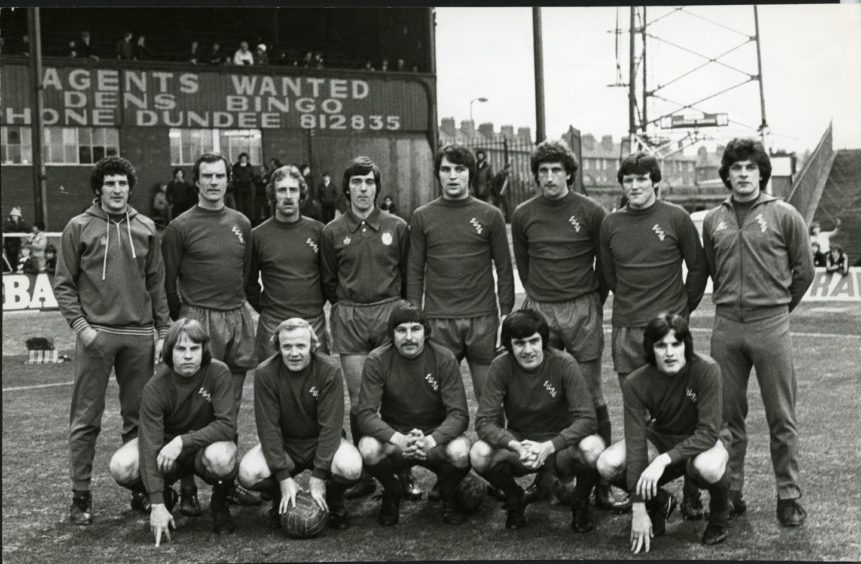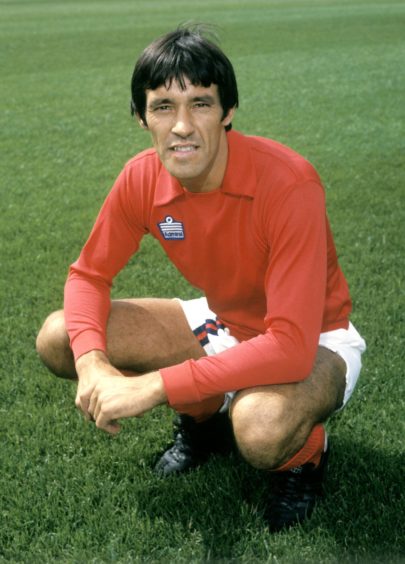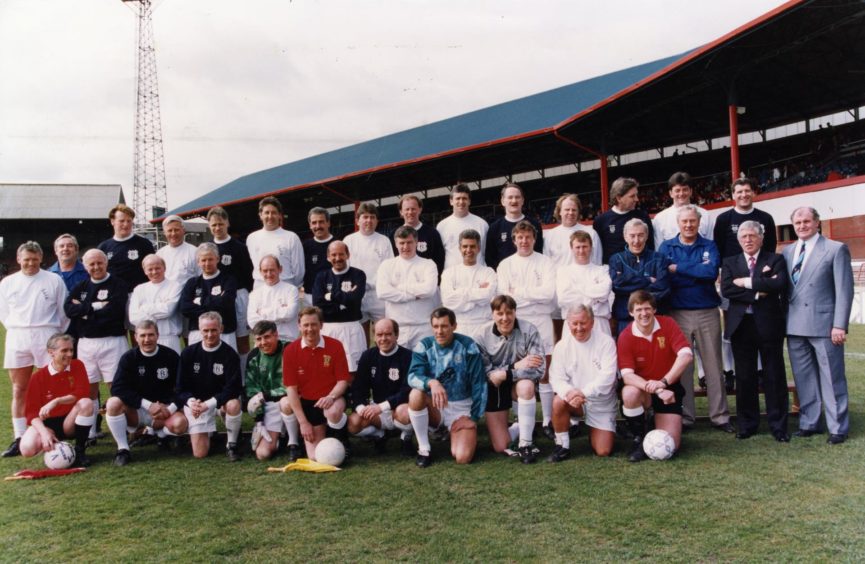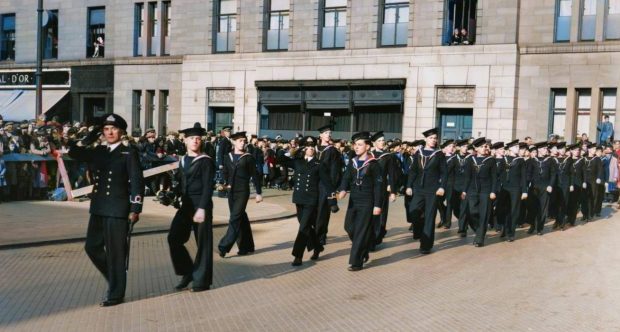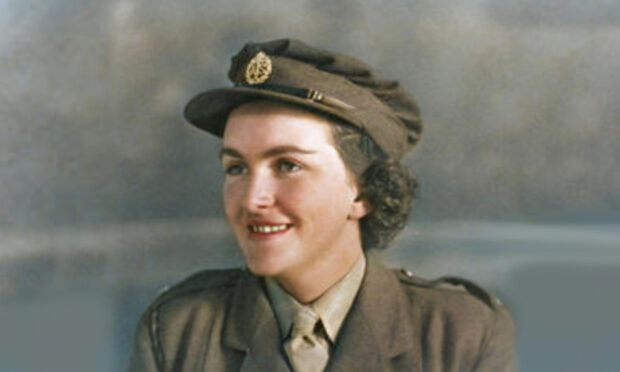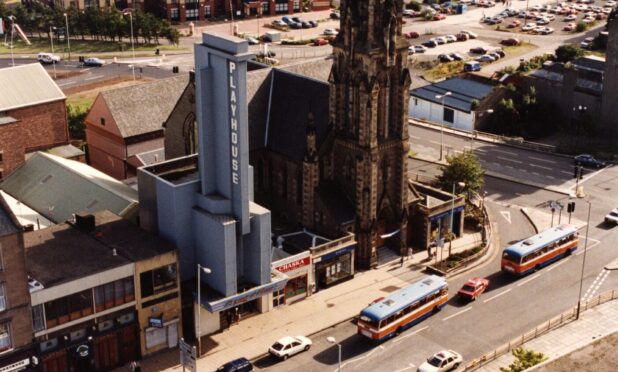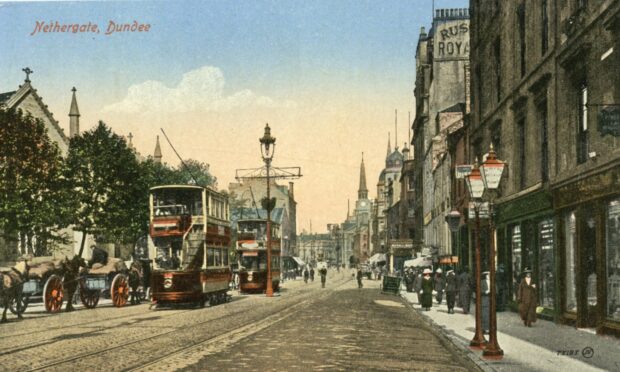Peter Lorimer burst into tears every time he left Dundee when he first went to play for Leeds United as a 15-year-old boy in 1962.
Lorimer would go home to Dundee every six weeks and the tears would flow when it was time to go back across the Tay Rail Bridge to return to his digs in Yorkshire.
He would overcome homesickness to become the club’s youngest debutant before going on to make over 700 appearances and score a record 238 goals for Leeds.
He thought he might one day end up back in Broughty Ferry because he “missed the sea air and the special light on the water from the day I left”.
He passed away aged 74 on Saturday following a long illness and his death follows those of his former team-mates Jack Charlton, Trevor Cherry and Norman Hunter.
Life and times of a football legend
Lorimer was born in Dundee in 1946 and his father Peter was a seafarer in the Royal Navy and mum Janet was a nurse.
He was brought up in Broughty Ferry and lived next door to the Regal cinema and couldn’t get to sleep until after 10.30pm because of the noise.
Lorimer was educated at Eastern School and by the age of seven he was playing football for the under-12 team and scoring goals for fun.
He went on to play for Stobswell Boys and Broughty YMCA and he was first invited to go down to Leeds United at the age of 13.
He was called up to play for Scotland Schoolboys and scored against England at Ibrox in a 4-2 win.
Lorimer was wanted by 30 clubs including Manchester United and Rangers but Don Revie was in such a hurry to sign him that he was stopped for speeding.
He joined Leeds and signed professional forms for £17 a week and lodgings and became the youngest debutant in the club’s history when he lined up alongside John Charles against Southampton on September 29 1962 aged 15 years and 289 days.
He earned himself several nicknames stemming from his powerful shooting including Hot Shot, Thunder Boots and Lash.
European semi-final date at Dens Park
Lorimer would return to his native city to play at Dens Park three times including the Inter-Cities’ Fairs Cup semi-final against Dundee in 1968.
Bobby Ancell’s Dundee side found themselves in the semis after a great run which started by winning over two legs against DWS Amsterdam.
Dundee went on to take the scalps of Royal Liege and FC Zurich to progress and 25,000 fans were at Dens to watch the first leg of the semi-final against Leeds.
A Paul Madeley header midway through the first half put Leeds ahead before right-back Bobby Wilson headed home the equaliser before half-time.
A late goal by Scotland international Eddie Gray was all that separated the teams at Elland Road and denied Dundee a place in the two-legged final.
Lorimer helped Leeds overcome Ferencvaros in the final and ended the 1967-68 campaign having hit 30 goals in 60 games.
Testimonial game in 1978
During his time at Elland Road he won two First Division titles, FA and League Cup wins, two Inter-Cities’ Fairs Cups and the Charity Shield.
Lorimer brought a host of star names back to Dens in 1978 for his testimonial game where a crowd of 7,908 watched a Peter Lorimer Select win 3-2.
Lorimer’s Select included no fewer than seven full internationals including Billy Bremner who was given a standing ovation for a man-of-the-match performance.
A double from striker Ray Hankin twice pushed Lorimer’s side ahead in the match before first Eric Sinclair, then Billy Pirie equalised.
The match was heading for a draw until a late winner by ex-Aberdeen player Arthur Graham made Lorimer’s night.
Lorimer left Leeds in 1979 for spells with Toronto Blizzard and Vancouver Whitecaps.
He returned to England with York and then in 1983 arrived back at Elland Road to make a further 87 appearances and add 19 goals to his tally, before heading for Whitby and ultimately into retirement.
Lorimer played again at Dens in 1993
Dundee and Leeds would do battle again in 1993 in a re-run of the 1968 semi-final to mark the 25th anniversary of the game.
Dundee United manager Jim McLean played for Dundee in a team which also included club legends Bobby Cox, Jocky Scott and Gordon Wallace.
Leeds opened the scoring through Russell Doig in six minutes before Jocky Scott scored twice for Dundee and Gordon Wallace was also on target in a 3-1 win.
George Stewart was stretchered off after breaking a leg although he quipped from casualty after the match: “Dundee always wins when I play!”
Former Dundee goalkeeper Ally Donaldson played in all three games which Lorimer played at Dens and said he was very sad to hear about his death.
“Peter was a very good right winger who could cross the ball very accurately and also had a very powerful shot,” he said.
“Leeds were excellent when we played against them in 1968, but we were definitely disappointed when we didn’t go through.
“When the draw was made we felt we had a chance because we’d had a good run in the Fairs Cup that year.”
Donaldson was involved in a famous incident with Jack Charlton in the first leg which frightened off the tough as nails centre-half.
Leeds won a corner on the right side at the Provost Road end of the ground.
Donaldson said: “As usual, international centre-half Jack Charlton took up his customary position at the near post.
“Peter Lorimer took the corner and aimed for Charlton.
“I challenged him strongly for the cross and collided with him, injuring his ankle in the process.
“As a result, big Jack did not return for any more corners during the game.
“I was often asked about the power of Peter’s shot and remember watching Scotland playing Zaire in the 1974 World Cup game in West Germany.
“Peter scored with a rocket shot.
“The keeper almost saved it – on the way out!”
Could Lorimer have managed Dundee?
Lorimer was linked with the Dundee job in 1977 when Davie White resigned having failed to get promotion at the first attempt after relegation from the Premier League.
Lorimer was approached to become player-manager but it was his testimonial year at Leeds and he felt he could not leave at that time.
Tommy Gemmell was then appointed to replace White.
Lorimer’s name was mentioned again in April 1980 when Gemmell left after Dundee were relegated from the Premier League but nothing came of the speculation.
International success
In addition to success at Leeds, Lorimer won 21 caps and scored four goals for his country, who he represented at the 1974 World Cup finals in Germany.
Donald Ford, who spent 11 years with Hearts, also went to Germany as part of a Scotland squad which also included Denis Law, Billy Bremner and Kenny Dalglish.
Ford, who lives in Carnoustie, was part of the now much respected squad which failed to progress from a group featuring Zaire, Brazil and Yugoslavia.
“I was lucky enough to be part of the squad which Willie Ormond chose to go to the World Cup finals in Germany,” he said.
“Peter’s goal against Zaire was a typical Lorimer strike.
“I am sure that both his Leeds and Scotland career will be splendidly remembered by those who had the privilege to see him play.
“For me, he was up there as both a superb footballer, and a gentleman.”
Post-playing, Lorimer remained a prominent figure at Leeds, working as an ambassador and attending home and away games.
The news of his death came hours after Leeds’ 2-1 Premier League win at Fulham on Friday night.
